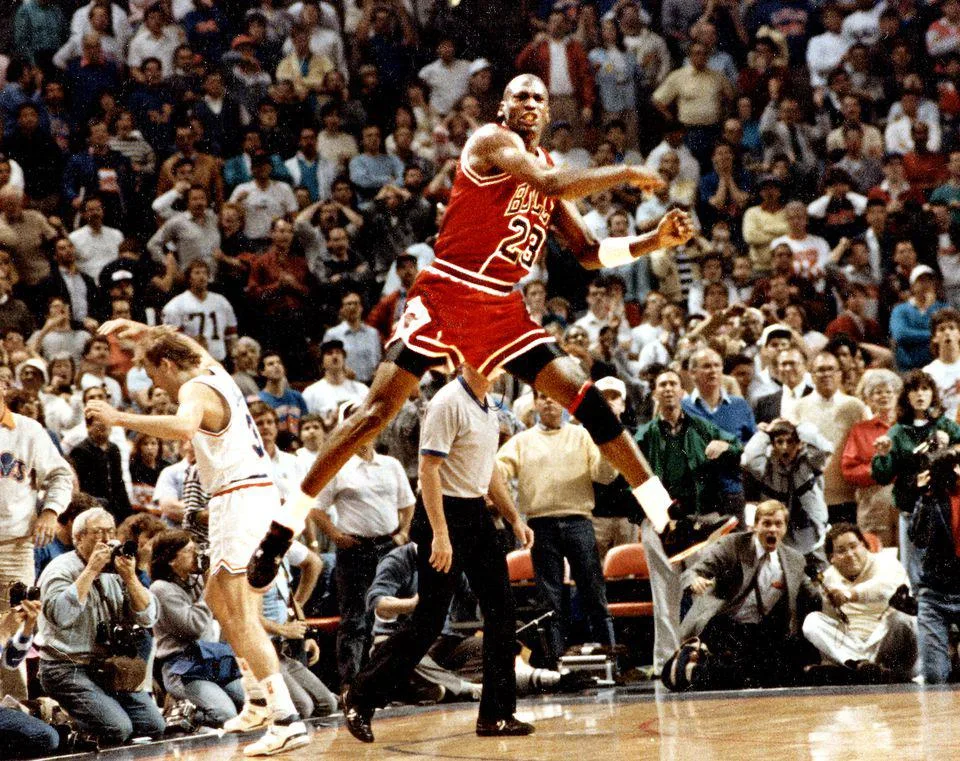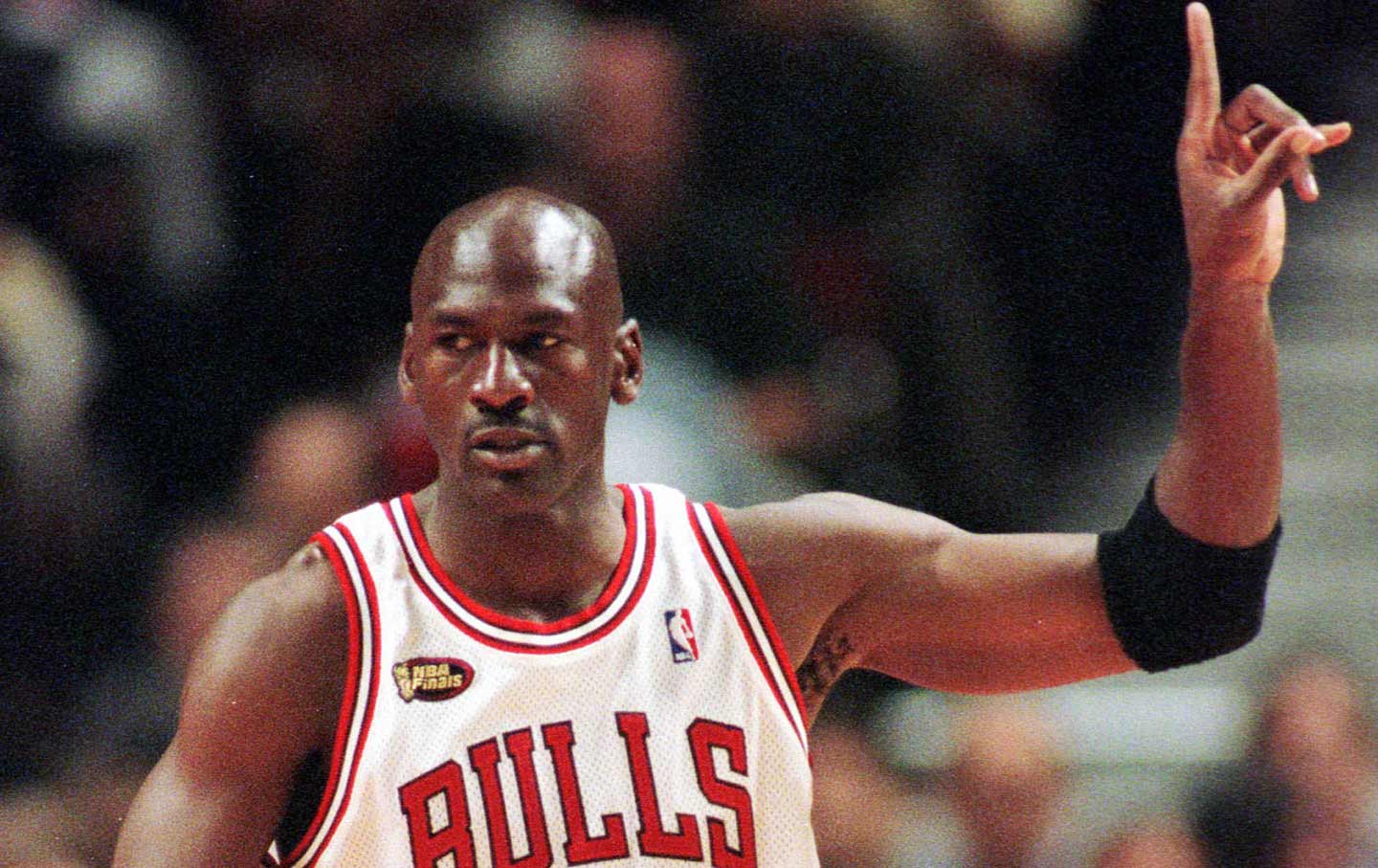The debate over who is the greatest basketball player of all time has raged for decades, with various candidates making strong cases. However, when it comes to Michael Jordan, no discussion of the greatest is complete without his name at the forefront.
His legacy in the NBA is not just built on his on-court accomplishments, but also on the cultural and global impact he has made, shaping the modern era of basketball in ways that few athletes have achieved in any sport.
Jordan’s basketball career was defined by dominance, consistency, and a relentless will to win. From his time with the Chicago Bulls to his brief stint with the Washington Wizards, his influence on the court was undeniable. At his peak, Jordan was not only the best player in the NBA, but he also transcended the game itself, becoming a global icon and an embodiment of excellence.
The statistics are staggering. Six NBA championships, five MVP awards, and ten scoring titles. Jordan’s career achievements are a testament to his greatness. He was a 14-time NBA All-Star, a 10-time All-NBA First Team selection, and a six-time NBA Finals MVP.
These numbers alone position him as one of the most decorated athletes in the history of professional sports. But what truly sets him apart is his ability to increase his game when the stakes were highest.
Jordan’s perfect 6-0 record in the NBA Finals is a major part of his legacy. Every time he reached the pinnacle of basketball, he delivered, never allowing his team to lose in the final series. His performances in those Finals, particularly in clutch moments, have become legendary.

It wasn’t just about the championships for Jordan
The “Flu Game” in 1997, his game-winning shot in the 1989 Playoffs against the Cleveland Cavaliers, and his iconic “The Last Shot” in 1998, are just a few examples of his ability to shine when the pressure was at its peak.
It was also how he won them. His ability to perform in high-stress situations, and his clutch performances in key moments, cement his place in history.
Jordan’s influence extends beyond just his basketball ability. His global reach helped take the NBA to new heights. He became the face of basketball during the 1990s, attracting fans from every corner of the globe.
His rivalry with Magic Johnson and Larry Bird in the 1980s helped bring the NBA to national prominence, but it was Jordan who made the game a global phenomenon.
His iconic partnership with Nike, resulting in the Air Jordan brand, revolutionized the sneaker culture and left a lasting impact on both the fashion industry and sports marketing.
The Air Jordan shoes became synonymous with excellence and were a cultural staple during the 1990s and beyond. Jordan’s work ethic, fierce competitiveness, and leadership were central to his success. He was known for his intensity in practice and his constant push to make himself and his teammates better.
His willingness to challenge his teammates and demand excellence from everyone around him was a driving force behind the Chicago Bulls’ success. Jordan’s leadership was not just about words, but about setting an example through his actions.

No matter what, he showed up every day
He didn’t just show up on game day—he showed up every day, whether it was in practice or in the weight room, leading by example and pushing everyone to work on their game. This work ethic became the standard for future generations of NBA players.
While Jordan’s on-court accomplishments are well-documented, his influence off the court was equally significant. His leadership in social causes, his role as an advocate for racial equality, and his willingness to speak out on important issues set him apart from many other athletes of his era.
He wasn’t afraid to use his platform to promote change, despite the risks to his image and endorsements. Jordan’s voice has continued to resonate in important conversations long after his playing days ended.
Another factor that keeps Jordan at the top of the GOAT debate is his impact on the modern game. The level of athleticism, skill, and competition in the NBA today can be traced back, in many ways, to Jordan.
His style of play, his competitive drive, and his commitment to excellence raised the bar for future generations. Young players looked up to him as a role model, and many current NBA stars, from Kobe Bryant to LeBron James, have spoken about how Jordan influenced their approach to the game.
There are those who argue that the rise of LeBron James or other players in the current era could challenge Jordan’s claim to the title of GOAT. While LeBron’s career is extraordinary and his impact on the game is undeniable, the debate often comes back to Jordan’s unmatched ability to perform under pressure.

Comparison is inevitable
In the Finals, his undefeated record speaks volumes. LeBron, while amazing, has experienced more failure in his championship appearances, which has been used by many to compare the two’s legacies.
While comparisons between the two are inevitable, they often fall short of capturing Jordan’s distinct place in NBA history. His flawless Finals record, coupled with his consistent dominance over the course of his career, gives him an edge in the GOAT debate.
The combination of Jordan’s skill set, his leadership, and his cultural influence is why his legacy remains untouchable.
Michael Jordan may have retired in 2003, but his legacy continues to live on. From his championships with the Bulls to his influence on the NBA’s global reach, his impact transcends the game itself.
There will always be debates over who is the greatest of all time, but Michael Jordan’s name will always be at the center of that discussion. His legacy, both on and off the court, is unparalleled, and his place in basketball history remains secure.







